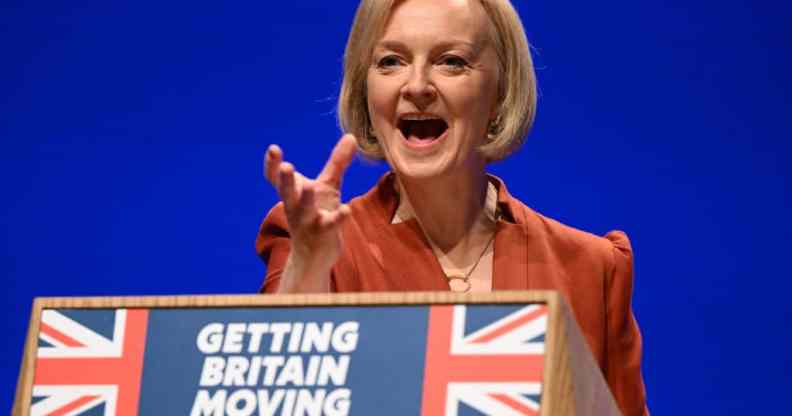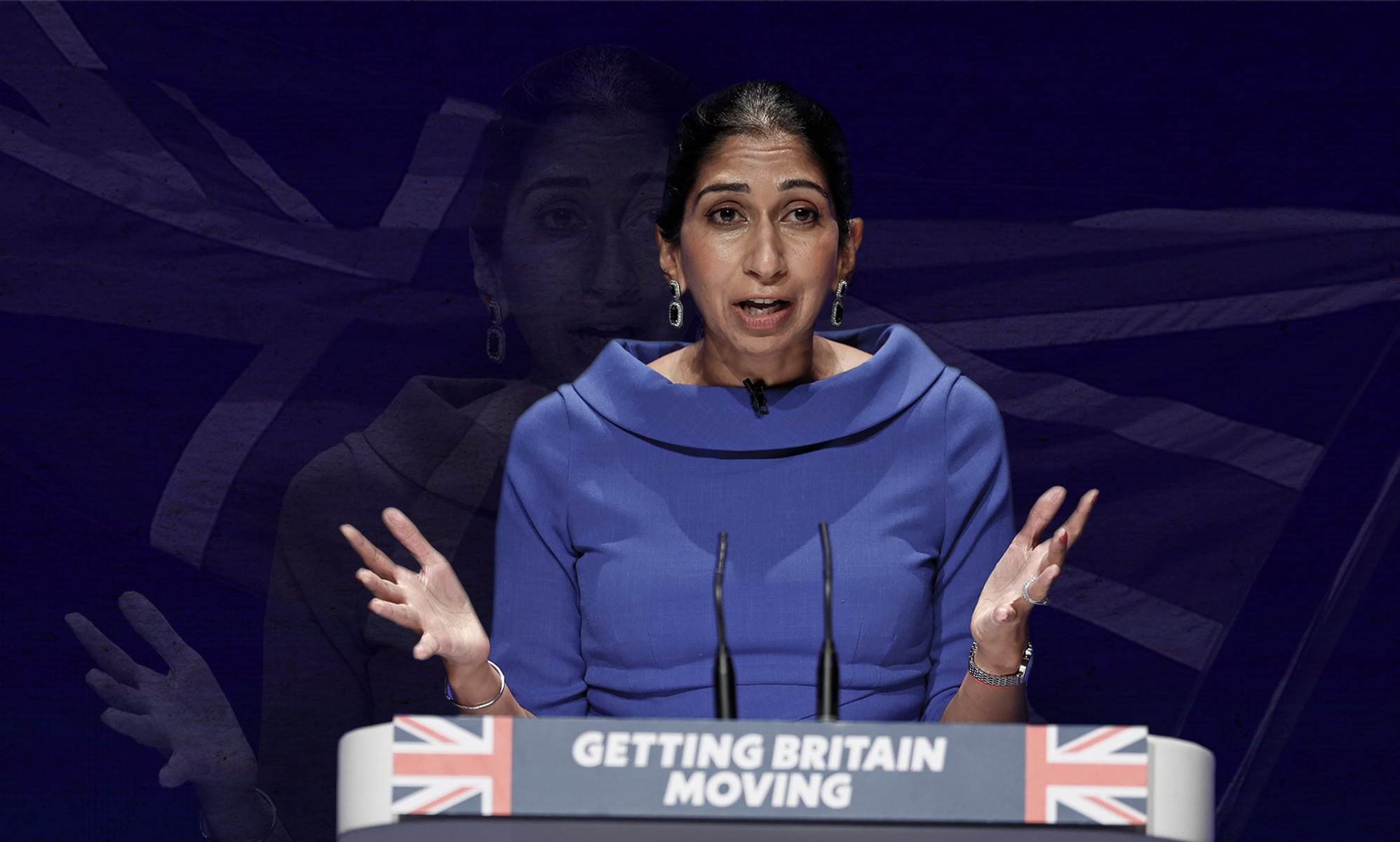Downing Street hits back at LGBTQ+ activists who blasted Liz Truss’s Tory conference speech

Britain’s Prime Minister Liz Truss delivers her keynote address on the final day of the annual Conservative Party Conference. (AFP via Getty/OLI SCARFF)
Downing Street has said it’s a “mischaracterisation” to suggest Liz Truss is planning on withdrawing from the European Convention on Human Rights – but legal experts aren’t so sure.
During her Conservative Party conference speech, Truss said home secretary Suella Braverman “will be bringing forward legislation to make sure that no European judge can overrule us”.
Speculation immediately mounted that Liz Truss was alluding to a revival of Dominic Raab’s controversial Bill of Rights, which would have seen the UK withdraw from the European Convention on Human Rights (EHRC), which is overseen by the European Court of Human Rights.
Among those who expressed concerns was Jayne Ozanne, an LGBTQ+ rights activist, who told PinkNews that she was concerned for the UK’s future in the EHRC after Truss’ comments.
However, a spokesperson for No 10 told PinkNews on Wednesday afternoon (5 October) that it was a “mischaracterisation” to suggest that Truss’ government was planning on withdrawing from the EHRC.

Suella Braverman says it’s her ‘dream’ to see a refugee flight to Rwanda take off. (Getty)
“More legislation will be issued in due course,” a spokesperson said. “That wouldn’t be how we would characterise her statement.”
When asked if it could confirm that the UK government is not planning on withdrawing from the EHRC, the spokesperson referred PinkNews back to Truss’ original comments in her speech.
“We have nothing further to add to what she said today.”
Liz Truss’ comments about European court are likely just ‘political rhetoric’
Javier Garcia Oliva, a professor of law at the University of Manchester, told PinkNews that Truss’ suggestion to overrule European judges wouldn’t work as long as the UK is still part of the Council of Europe.
“From a purely legal perspective, maintaining that decisions of the European judges are going to be sidelined cannot be done if we are still part of the Council of Europe’s model,” he said.
According to Oliva, it would be “legally possible” for the government to withdraw – but he doesn’t believe it’s likely.
“I think this is just a message in the political sense,” he said.
“I think it is extremely unlikely that the government is going to seriously consider leaving the Council of Europe because that would leave us in this group with Russia and Belarus and I don’t think that’s what this government really wants.”
That’s echoed by Dr. Ilias Trispiotis, a professor in human rights law at the University of Leeds.
Trispiotis told PinkNews that it’s “hard to know” if Truss’ comments are just “political rhetoric” or indicate that there’s a plan to withdraw from the EHRC and from the Council of Europe.
“The idea that parliamentary sovereignty is in tension with upholding the European Convention on Human Rights is false,” Trispiotis said.
“The UK has opted to restrict its sovereignty by accepting legally binding obligations under international human rights law and by authorising the European Court of Human Rights to enforce those obligations.
“The obligation to comply with the judgments of the European Court of Human Rights is the result of the sovereign judgment of the UK, through its power to ratify treaties under international law, rather than a threat to it.”
He continued: “It is hard to predict whether the UK will opt to withdraw from the European Convention on Human Rights. It is worth recalling that the only two countries that have withdrawn from the Council of Europe so far are Greece in 1969, when the country was under a military dictatorship, and Russia in 2022.
“Those parallels are devastating for UK democracy, which should champion rather than undermine human rights law.”

